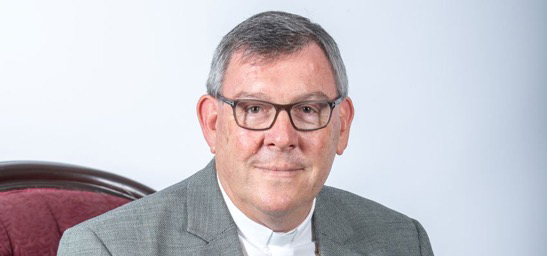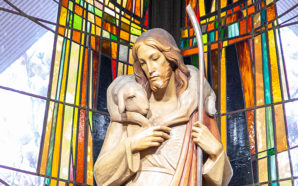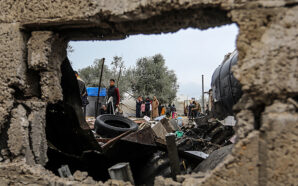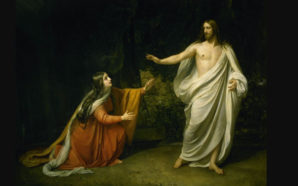Bishop Brian Mascord of the Diocese of Wollongong has expressed strong opposition to the push from the NSW Teachers Federation to have religion classes removed from public schools.
“I stand in solidarity with key leaders from across Christian denominations, and members of All Faiths SRE, in strongly opposing the federation’s position,” Bishop Mascord told The Catholic Weekly.
He also questioned why the Federation sought to have the classes removed despite the many benefits for students, which have been affirmed by the NSW government’s independent review.
“It is extremely disappointing that the NSW Teachers Federation is advocating to remove Special Religious Education (SRE) from schools, in contradiction to numerous worldwide studies that overwhelmingly affirm the positive impact that religious education has on the well-being of young people.
“It is difficult to comprehend why the federation would wish to jettison the positive developmental, educational and cultural impacts that SRE has on young people—a view that was confirmed by the NSW Government’s Independent Review of SRE released in 2017.”
The Federation announced in the media last week that it would begin a campaign to have SRE classes removed from government schools.
Reasons for the push included union claims about the quality of SRE instructors and policy that doesn’t allow students not participating in the religion classes to undertake other “academic instruction or formal school activities.”
“NSW public schools must be completely secular in order to provide for students from diverse cultural, linguistic and religious backgrounds,” Jack Galvin-Waight, the Federation’s SRE and special ethics education delegate, told the media.
However, Bishop Mascord expressed concern that removing SRE would deprive parents of choice in regards to their children’s education at government schools, and deprive students of an education reflective of Australia’s diverse, multicultural society.
“Given the evidence, and the even higher quality of SRE in NSW since the implementation of the findings of the Independent Review, any reasonable person would expect that this parental choice should be celebrated in a multicultural and multi-faith society such as ours.”
SRE classes in government schools in NSW began in 1880 and today, the classes are optional.
Classes are held weekly for at least 30 minutes and those opting not to attend can select Special Ethics Education instead, or No Religion.
Bishop Mascord queried why, instead of seeking to remove SRE entirely, the Federation wasn’t working with SRE providers and the government to improve the quality of SRE and its implementation.
“It is equally concerning that the federation do not appear to be interested in working alongside SRE providers from all major faiths and the Department of Education’s Consultative Committee—a body of which they are also a member, giving them the opportunity to contribute to making SRE consistently better.
“Instead, they have adopted a strategy to announce their position via the media in the first week back at school for 2019.
“I would not be surprised if there were many members of the federation—themselves parents with children attending schools—who would desire to know why the leaders of the federation wish to remove parental choice for formation in the faith of their family, or in Special Education in Ethics,” he said.
The NSW Catholic Bishops Representative on the All Faith Special Religious Education Group, Jude Hennessy, told The Catholic Weekly all the major faith groups want to see SRE remain in public schools.
“I join with my colleagues from the Bahai, Jewish, Buddhist, Islamic and Hindu faiths in confidently stating that all major faiths are committed to continuing to pour significant human and financial resources into the provision of high quality SRE for government school communities,” Mr Hennessy said.
“For us as a group, the formation of quality teachers and curriculums remains a priority so parents can continue to confidently choose SRE knowing their sons and daughters will receive all of the benefits from spiritual formation in the faith of their family that a quality education systems make provision for.”
The Study of SRE and its Value to Contemporary Society, released at the 2018 Parliamentary Celebration of SRE was co-authored by Associate Professor Zehavit Gross at Bar-Ilan University in Israel and Sydney University’s Professor Emerita, Suzanne Rutland.
During an interview last year, Professor Gross said, “The scriptures open for us many basic questions about the meaning of life. I can still be modern and even post-modern, and be religious. It doesn’t have to be a contradiction.
“Students are looking for meaning. They are looking for moments of transcendence.
“Reflective SRE means the teachers teach the students systematically to reflect, to be critical, to question things, to explore things and to discover new horizons.”
Professor Rutland also commended the value of SRE, pointing out that adolescents who pray or meditate once a week have far less mental health problems in adulthood.
“SRE can provide values education but within the religious framework and also within the religious framework of culture and the home culture of a child and that’s very important. People talk about culture but religion is an important element in culture.”
Bishop Brian Mascord is the Bishop of Wollongong and the Bishops’ Liaison for the Catholic Conference of Religious Educators in State Schools (NSW & ACT).
Republished with the permission of Catherine Sheehan and The Catholic Weekly.








